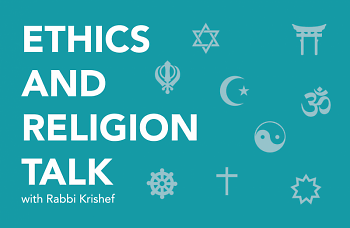The Reverend Colleen Squires, minister at All Souls Community Church of West Michigan, a Unitarian Universalist Congregation, responds:
I completely agree, unless each person is given full access to all rites of passages or membership then it is wrong to say all are welcome. Welcoming should not have limits for certain groups of people.
To become a Welcoming Congregation, which is our UU equivalent to Open and Affirming, each congregation must do the intentional work to earn that designation. Intentional work is about being thoughtful about all the ways we are inclusive and welcoming to all people who enter our communities. No person is denied access to ordination. Unitarian Universalists have long advocated for equal marriage. Our clergy is not prohibited from performing nontraditional union ceremonies.
Rev. Salvatore Sapienza, the Senior Pastor at Douglas Congregational United Church of Christ in Saugatuck/Douglas, responds:
I recently saw a local church’s social media post which read: “Worship where you are celebrated, not tolerated.” I think that really speaks to the difference between “welcome” and “inclusion.”
Many churches, for example, now say, “All Are Welcome” to the LGBTQ+ community, but what they really mean is that you are welcome to sit in the pews (and put something in the collection plate), but you can’t participate fully in the life of our church because we think you’re not worthy of communion, marriage, ordination. In other words, we’ll tolerate your being here, but we won’t extend the same benefits to you as we do to our other congregants.
Over 30 years ago, the church I currently pastor in Douglas became one of the very first “Open and Affirming” churches in the United States, one that is both fully welcoming and inclusive of the LGBTQ+ community in our church’s life and ministry, including communion, marriage, and ordination.
To help find a truly welcoming and inclusive church, there is an excellent organization called Church Clarity (churchclarity.org) which rates and scores local churches based on their “welcoming” policies.
Fred Stella, the Pracharak (Outreach Minister) for the West Michigan Hindu Temple, responds:
I see your point. That said, I’m sure there are many Catholic, Orthodox, Baptist women in the Christian community who feel wholly welcome in their churches. The same would be true for women in Jewish Orthodox shuls and women who belong to mosques. And there are gay individuals who seem to be willing to maintain their allegiance to faith communities regardless of the rules on homosexuality as long as they feel accepted by fellow believers.
My particular sect of Hinduism is quite forward thinking. It has been led by women from 1955-2017. Sexual orientation is no concern whatsoever when one requests initiation. But I do know that there are sects where a woman would never be in a major leadership role. Yet, this does not discourage the many women who maintain membership.
I would love to see a roundtable made up of those who are unable to serve in higher capacities in the religion or denomination of their choice. I suspect we would hear both support and frustration expressed. And for those who are challenged by the status quo, the reasoning for maintaining membership must be powerful.
My response:
I know that religious institution of various types do exist that explicitly do not welcome individuals who do not conform to their theology and practice. Their desire is to create closed communities of worship that support each other in their practice of religion. Their desire is to create a consistent atmosphere in which to raise children which does not question their theology and practice. I have seen this within the Jewish community and the conservative, largely non-evangelical, Christian community. They have no wish to engage with outsiders, but simply wish to be left alone.
It is against this backdrop that I see another set of religious institutions having a sincere wish to welcome all curious spiritual seekers, even though who don’t (yet) fit their model of ideal piety and behavior. Their hope is that by joining their community, they will influence the behavior of those who are not (again, yet) fully committed to the way of life promoted by that institution. They are welcoming of all, but not inclusive. I see this in the Chabad organization in the Jewish community and also in many evangelical churches, among others, who restrict membership to those who conform to a specific set of theological commitments.
For those who are looking to be fully included in all rituals, the key word is inclusive, not welcoming. Note however that even welcoming, inclusive institutions still may have barriers to full participation. A synagogue may be welcoming to all, Jewish or not, but fully inclusive only to those who are Jewish.
This column answers questions of Ethics and Religion by submitting them to a multi-faith panel of spiritual leaders in the Grand Rapids area. We’d love to hear about the ordinary ethical questions that come up in the course of your day as well as any questions of religion that you’ve wondered about. Tell us how you resolved an ethical dilemma and see how members of the Ethics and Religion Talk panel would have handled the same situation. Please send your questions to [email protected].
The Rapidian, a program of the 501(c)3 nonprofit Community Media Center, relies on the community’s support to help cover the cost of training reporters and publishing content.
We need your help.
If each of our readers and content creators who values this community platform help support its creation and maintenance, The Rapidian can continue to educate and facilitate a conversation around issues for years to come.
Please support The Rapidian and make a contribution today.
